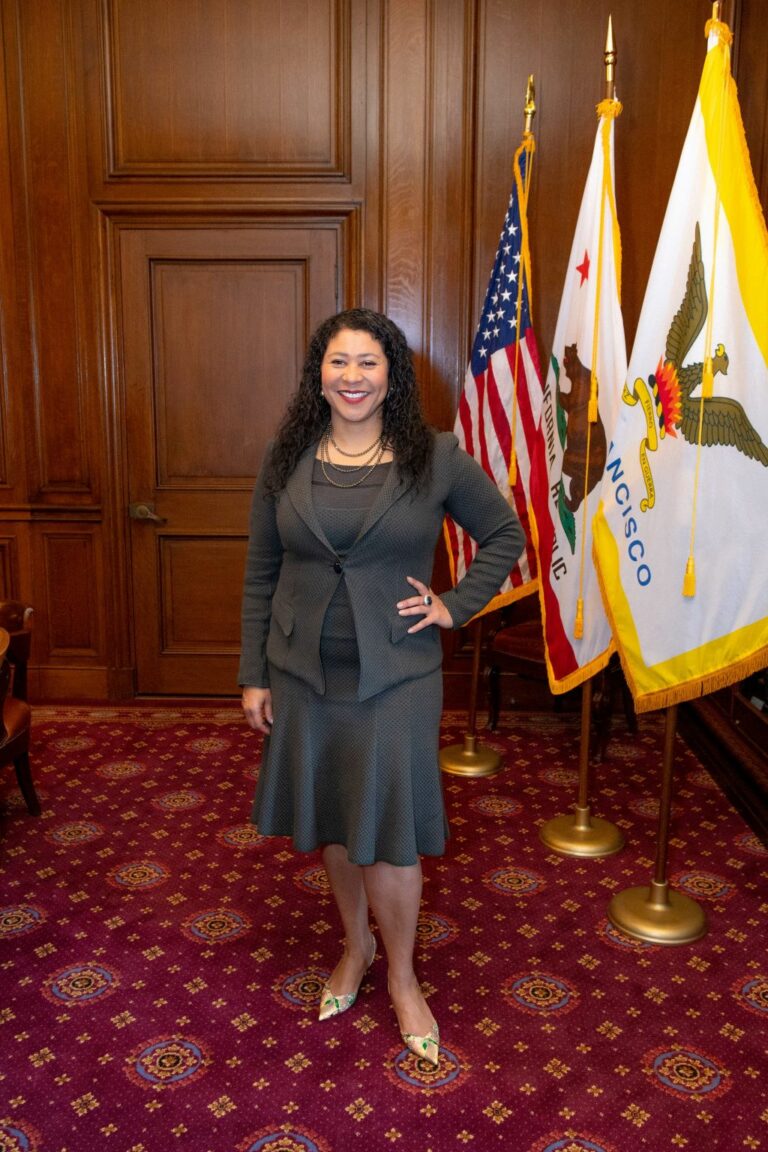Is London Breed's leadership truly reflective of the progressive values she claims to uphold? The 45th Mayor of San Francisco, known for her bold decisions and sometimes controversial stances, has been at the center of numerous discussions since taking office. Her tenure has sparked debates not only about her policies but also about her personal life, including her marriage to Lawrence Lui, a hotel developer whose presence in her life often raises eyebrows. Despite the controversies, Breed’s contributions to San Francisco cannot be overlooked. She has navigated complex issues such as homelessness, public safety, and economic development with an approach that blends pragmatism and idealism.
Born on August 11, 1974, in San Francisco itself, London Nicole Breed grew up in the city's Bayview-Hunters Point neighborhood. Her journey from humble beginnings to becoming one of California's most prominent political figures is nothing short of remarkable. As a member of the African American community, she broke barriers by ascending to the mayoral office—a position historically dominated by white men. However, her administration has faced criticism for its handling of certain social justice issues, particularly concerning racial equity and inclusivity. Critics argue that while Breed champions diversity rhetorically, some of her actions appear contradictory when viewed through the lens of systemic change.
| Personal Information | |
|---|---|
| Full Name: | London Nicole Breed |
| Date of Birth: | August 11, 1974 |
| Place of Birth: | San Francisco, California, USA |
| Spouse: | Lawrence Lui (Hotel Developer) |
| Children: | N/A |
| Career Highlights | |
| Position Held: | 45th Mayor of San Francisco (2018–2025) |
| Prior Role: | President of the San Francisco Board of Supervisors |
| Key Initiatives: | Homelessness reduction, LGBTQ+ rights advocacy, affordable housing expansion |
| Notable Achievements: | First African American woman elected mayor of San Francisco |
| Reference: | Wikipedia - London Breed |
Beyond the headlines, Mayor Breed's focus on pragmatic solutions has garnered both praise and skepticism. For instance, her decision to support Google.org and CEO Susan Wojcicki during a high-profile event highlighted her commitment to fostering partnerships between tech giants and local communities. At Hamilton Families, a nonprofit organization dedicated to supporting homeless families, Breed emphasized collaboration as key to addressing San Francisco's persistent challenges. While these efforts align with her vision for progress, detractors question whether such alliances disproportionately benefit corporate interests rather than marginalized populations.
A particularly contentious moment arose when a billboard depicting Breed lounging casually drew significant attention. Social worker Ellen Lee Zhou, who funded the advertisement, intended it as commentary on Breed's leadership style. Some interpreted the imagery as disrespectful or even mocking, sparking debate over artistic expression versus political critique. Regardless of intentions, the incident underscored the polarizing nature of Breed's governance. Supporters view her as resilient and innovative, capable of steering San Francisco through turbulent times, whereas opponents perceive her as out of touch with grassroots concerns.
One area where Breed's impact remains undeniable is her role in championing LGBTQ+ rights. During San Francisco's annual Pride Weekend celebrations, she officiated numerous weddings, symbolizing her dedication to equality and inclusion. This gesture resonated deeply within the community, reinforcing Breed's reputation as an ally. Yet, questions linger regarding how effectively her administration translates such gestures into tangible policy outcomes benefiting all residents, regardless of background or identity.
In navigating the complexities of urban politics, Breed frequently finds herself balancing competing priorities. Her administration's response to homelessness exemplifies this challenge. On one hand, initiatives aimed at increasing access to shelter services reflect genuine attempts to alleviate suffering. On the other hand, critics point out that systemic reforms necessary to eradicate homelessness entirely remain elusive under her watch. Similarly, Breed's stance on public safety—balancing crime prevention measures with civil liberties protections—has drawn mixed reactions, illustrating the delicate equilibrium required in modern urban leadership.
Throughout her tenure, Mayor Breed has demonstrated resilience amidst adversity. From managing natural disasters like earthquakes to addressing socioeconomic disparities exacerbated by the pandemic, she consistently positions herself as a leader committed to serving San Francisco's diverse population. Nevertheless, transparency surrounding her private life continues to fuel curiosity. Details about her relationship with Lawrence Lui remain sparse, leading many to speculate about potential conflicts of interest or ulterior motives. Such opacity occasionally undermines trust among constituents seeking authenticity from their leaders.
Ultimately, London Breed's legacy will likely hinge on her ability to reconcile ambition with accountability. As San Francisco grapples with rapid transformation driven by technological innovation and demographic shifts, effective governance demands more than mere rhetoric—it necessitates concrete action aligned with core principles. Whether Breed succeeds in bridging divides and delivering lasting improvements for all citizens remains to be seen. What is clear, however, is her unwavering determination to leave an indelible mark on the city she loves.



